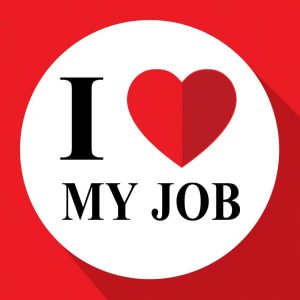|
2021 studies show these are the top reasons Employees love their jobs.
Covid has changed our work environment forever. The Great Resignation and the 21st Century challenges regarding employment are drastically changing our business world. Over 50% of the workforce are Millennials (26-40 years old) and Gen Z (25 years old and below). Employers need this workforce for their companies to survive. And to succeed, companies will be forced to transform, focusing on the Employee Experience (EX). The EX is how an organization shapes the way people work and live…productivity, flexibility, and wellbeing.
In this post-pandemic era, EX will be the key to retention! The cost of turnover is exceptionally high! It is estimated that losing an employee can cost a company 1.5-2 times the position salary. Depending on the individual’s level of seniority, the financial burden fluctuates. It costs an average of $1,500 per employee to hire an hourly worker.
Many employees will not return to the same workplace before the pandemic. Employees have more options now. Workers feel more empowered than ever…which is why they need to love their jobs and employers!
Here are the top reasons your employees will stick around:
- Hybrid Work Environment – Retention rates are higher with employers who have flexibility. What does that mean? Employees want a hybrid work environment that includes working from home, flexible hours, and flexible work. Here is why – parents’ priority is their children, so when schools shut down or change schedules, they need the flexibility to change their work schedules.
- Health and Wellbeing including child care – Employees value safety and security, health and physical wellbeing, and family support such as subsidies or childcare options, so both women (50% of the workforce) and men can be at work.
- Transportation – If you are recruiting hourly workers, they may need a ride to the work environment. However, there may not be vital transportation services depending on the city they work in.
- Strong management – Exemplifies kindness, flexibility, empathy, and transparency. What does that mean? Positive culture, regular feedback, coaching, development, and trust.
- Diversity, Equity, Inclusion, and Access – Millennials and Gen Z (50% of the workforce) care about this topic. Employers who embrace this will be able to attract and retain workers.
- Trust in the Organization – Employees want to work for a company known for its good deeds, fair pay and work practices, and a solid commitment to customers and the community. This includes supporting the environment, volunteering, charities, and a corporate social responsibility statement they can hold you to.
- Meaningful Work and Growth Opportunities – Employees want career development. What does this mean? They want clear goals and a culture that supports learning. What opportunities are thereafter my entry job? What do I need to do to excel? Do I have a job coach? Do I have a mentor? Do I know what competencies are required to make me successful? What tools and systems are available to me? What is the performance level I will be held accountable for?
- Connection with other employees in my age range – Community resources groups in my same age, diversity, and department.
Economic professors believe this workforce shortage will not change for the next 5 years. So, whether you are a small, medium, or large company, you will be focusing on talent management for the next few years. As baby boomers retire more and more (the last of boomers will be retired in 5 years), your company will need to focus on your next leaders and workers to grow your company and sustain the growth of your business.
https://www.c4eo.org/
Re: Josh Bersin 2022 Predictions, The Bersin Company,
|

